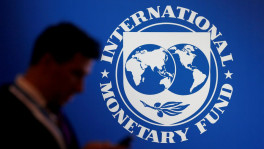State companies fail, private makes money
Seventeen state-owned companies are listed in the stock market

Most state-owned companies listed in the stock market are running at a loss because they are not competitive. Meanwhile, only some state-run companies that have a monopoly are making a profit.
Sources at the Dhaka Stock Exchange (DSE) say that 17 state-owned companies in the manufacturing sector are listed in the stock market. Five of these companies incurred losses in the first half of the current fiscal year. Of these five companies, Zeal Bangla Sugar, Shyampur Sugar and Usmania Glass have been running at a loss for almost ten years. Usmania Glass, which used to pay 10 percent stock dividend, did not give any dividend in the last fiscal year. The two other companies have not paid dividends for the last decade.
However, Atlas Bangladesh, which has incurred losses for four straight years, Eastern Cables, which has also suffered losses for the last two years, have been paying dividends regularly.
National Tubes, which made a profit in the first half of the current fiscal year after running at a loss for the previous three years, has also been giving dividends regularly.
Meanwhile, the state-run companies that have a monopoly are also struggling. Ten of them are listed in the stock market – four have added to their profits while the profits of the remaining six have declined.
Dr Ahsan H Mansur, executive director of the Policy Research Institute, said no government is capable of doing business in a competitive market. "Still, (the government) is doing business because some government people benefit from it."
Regarding the government's monopoly business, he said, "Consumers are affected by monopoly businesses because these companies can set any price they wish for their products because there is no competition in the market. That is what the government is doing."
"The government's job is to run the administration, to create a proper business environment for businessmen and to regulate them. So, the government should not do business," he said.
Sugar firms not in good shape
Sugar companies run by the Bangladesh Sugar and Food Industries Corporation have been incurring a loss for a long time. Three companies under the corporation are listed at the stock market. Of them, only Renwick Jajneswar, which mainly supplies machinery to sugar mills, makes a profit.
Senior officials at the sugar mills said the government sugar companies produce sugar from sugarcane that is grown on their own land. But their sugar production cost is very high because of natural calamities and the use of very old machines. The production cost of each kg of sugar is Tk177 at the government sugar mills, but it is sold for Tk70 per kg in the market. Meanwhile, private companies import crude sugar and refine it here. Their production cost is between Tk55 and Tk60 per kg.
Ajit Kumar Paul, chairman of the Bangladesh Sugar and Food Industries Corporation, said, they have been taking various measures to make the sugar companies profitable.
Engineering section also in bad shape
Three companies under the Bangladesh Steel and Engineering Corporation are listed in the share market. Atlas Bangladesh markets motorcycles, Eastern Cables, as the name suggests, is in the cable business, and National Tubes sells various types of steel pipes.
Atlas Bangladesh and Eastern Cables made a loss in the first half of the current fiscal year. National Tubes occasionally makes a profit, but runs at a loss most of the time.
On the other hand, private motorcycle and cable companies are doing good business.
ANM Kamrul Islam, managing director of Atlas Bangladesh, said competitive companies have been reducing prices. "So we have no option but to sell motorcycles at less than our production cost. We have signed a contract with TVS Auto Bangladesh to make the company profitable."
He added that they will buy the parts of 15-20 thousand motorcycles, assemble them, and then sell them in the market. "It will boost the profit of the company."
Usmania Glass Sheet produces and sells low quality and old model glass which has no demand in the market.
Company Secretary Shahadath Hossain of Usmania Glass said they are in the process of modernising the factory to produce standardised products.
A top official at National Tubes said, "The company mainly produces steel pipes. But it lost business following a ban on new gas connections to residential areas. The company recently introduced a new product in the market, and made a profit in the first half of the current fiscal year riding on this product."
Four companies lose business despite monopoly
State-owned companies have a monopoly business mainly in the energy and power sector. Apart from that, a state company supplies bandwidth from submarine cables.
The profits of four of the six companies in the power and energy sector declined in the first half of the current fiscal year. Of them, Meghna Petroleum lost 12 percent in net profit, Padma Oil 7 percent, Jamuna Oil 28 percent and Titas Gas Transmission 24 percent.
Mir Saifullah-al-Khaled, managing director of Meghna Petroleum, said, "Most power plants use LNG instead of oil. At the same time, their income from deposits has fallen due a decline in deposit interest."
Mahmudur Rab, company sectary of Titas Gas, said, "The government has lifted the minimum charge which has reduced our profit."
Meanwhile, the Power Grid and the Dhaka Electric Supply Company have made a profit by expanding their power transmission and distribution network.
At the same time, the net profit of Bangladesh Submarine Cable Company increased after the second submarine cable became fully operational.
Eastern Lubricants Blenders Ltd is surviving by supplying lubricants to government companies in the competitive lubricant market. However, its profit has declined.
Eastern Lubricants' Managing Director Mohiuddin Ahmed said the increase in the price of oil in the global market has affected the company's profit.
The Bangladesh Shipping Corporation and the Bangladesh Services Ltd, owning company of the Intercontinental hotel, also has good business.
A senior official at the shipping corporation said the company's business increased after the addition of eight new ships to its fleet.
Bangladesh Services Limited made a profit in the first half of the current fiscal year because Hotel Intercontinental has gone into service after a five-year break.
Sheikh Mizanur Rahman, former chairman of the Bangladesh Steel and Engineering Corporation, told The Business Standard that state-owned enterprises, in most cases, are left behind while competing with their private sector counterparts, despite the fact that state-owned companies make high quality products.
"Government companies are comparatively inefficient in terms of costing and pricing, and, as a result, it affects their profitability."
"Low efficiency is a reality in state owned enterprises. Structural and procedural issues often hinder the best allocation of resources, efficient procurement and even sales," he said.


 Keep updated, follow The Business Standard's Google news channel
Keep updated, follow The Business Standard's Google news channel
















